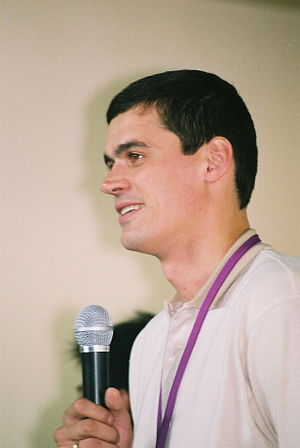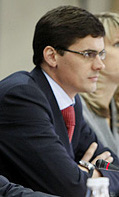Alexander Vladimirovich Popov (swimmer)
|
Alexander Popov |
||||||||||||||||||||||||||||||||||||||||||||||||||||||||||||||||||||||||||||||||||||||||||||||||||||||||||||||||||||||||||||||||||||||||||||||||||||||||||||||||||||||||||||||||||||||||

|
||||||||||||||||||||||||||||||||||||||||||||||||||||||||||||||||||||||||||||||||||||||||||||||||||||||||||||||||||||||||||||||||||||||||||||||||||||||||||||||||||||||||||||||||||||||||
| Personal information | ||||||||||||||||||||||||||||||||||||||||||||||||||||||||||||||||||||||||||||||||||||||||||||||||||||||||||||||||||||||||||||||||||||||||||||||||||||||||||||||||||||||||||||||||||||||||
| Surname: | Alexander Vladimirovich Popov | |||||||||||||||||||||||||||||||||||||||||||||||||||||||||||||||||||||||||||||||||||||||||||||||||||||||||||||||||||||||||||||||||||||||||||||||||||||||||||||||||||||||||||||||||||||||
| Nation: |
|
|||||||||||||||||||||||||||||||||||||||||||||||||||||||||||||||||||||||||||||||||||||||||||||||||||||||||||||||||||||||||||||||||||||||||||||||||||||||||||||||||||||||||||||||||||||||
| Swimming style (s) : | Freestyle | |||||||||||||||||||||||||||||||||||||||||||||||||||||||||||||||||||||||||||||||||||||||||||||||||||||||||||||||||||||||||||||||||||||||||||||||||||||||||||||||||||||||||||||||||||||||
| Birthday: | November 16, 1971 | |||||||||||||||||||||||||||||||||||||||||||||||||||||||||||||||||||||||||||||||||||||||||||||||||||||||||||||||||||||||||||||||||||||||||||||||||||||||||||||||||||||||||||||||||||||||
| Place of birth: | Sverdlovsk | |||||||||||||||||||||||||||||||||||||||||||||||||||||||||||||||||||||||||||||||||||||||||||||||||||||||||||||||||||||||||||||||||||||||||||||||||||||||||||||||||||||||||||||||||||||||
| Size: | 2.00 m | |||||||||||||||||||||||||||||||||||||||||||||||||||||||||||||||||||||||||||||||||||||||||||||||||||||||||||||||||||||||||||||||||||||||||||||||||||||||||||||||||||||||||||||||||||||||
| Weight: | 87 kg | |||||||||||||||||||||||||||||||||||||||||||||||||||||||||||||||||||||||||||||||||||||||||||||||||||||||||||||||||||||||||||||||||||||||||||||||||||||||||||||||||||||||||||||||||||||||
| Medal table | ||||||||||||||||||||||||||||||||||||||||||||||||||||||||||||||||||||||||||||||||||||||||||||||||||||||||||||||||||||||||||||||||||||||||||||||||||||||||||||||||||||||||||||||||||||||||
|---|---|---|---|---|---|---|---|---|---|---|---|---|---|---|---|---|---|---|---|---|---|---|---|---|---|---|---|---|---|---|---|---|---|---|---|---|---|---|---|---|---|---|---|---|---|---|---|---|---|---|---|---|---|---|---|---|---|---|---|---|---|---|---|---|---|---|---|---|---|---|---|---|---|---|---|---|---|---|---|---|---|---|---|---|---|---|---|---|---|---|---|---|---|---|---|---|---|---|---|---|---|---|---|---|---|---|---|---|---|---|---|---|---|---|---|---|---|---|---|---|---|---|---|---|---|---|---|---|---|---|---|---|---|---|---|---|---|---|---|---|---|---|---|---|---|---|---|---|---|---|---|---|---|---|---|---|---|---|---|---|---|---|---|---|---|---|---|---|---|---|---|---|---|---|---|---|---|---|---|---|---|---|---|---|
|
Medals
|
||||||||||||||||||||||||||||||||||||||||||||||||||||||||||||||||||||||||||||||||||||||||||||||||||||||||||||||||||||||||||||||||||||||||||||||||||||||||||||||||||||||||||||||||||||||||
Alexander Wladimirowitsch Popow ( Russian Александр Владимирович Попов , scientific transliteration Aleksandr Vladimirovič Popov ; born November 16, 1971 in Sverdlovsk ) is a former Russian swimmer . Due to his restrained, dignified appearance and the unique elegant swimming technique with which he "ruled" the sprint courses in the pool for years, Alexander Popow was nicknamed "Tsar".
Career
Alexander Popow started swimming relatively late because he first had to overcome his fear of the water. After his father took him to the swimming pool for the first time when he was eight years old , the fear was quickly forgotten and he found his element. "The water is your friend ... you don't have to fight with the water, just share the same spirit as the water, and it will help you move." (Swimmers web, June 29, 2001)
He originally started out as a back swimmer , but switched to freestyle in 1990 under his coach Gennadi Turezki. Just one year later, Popow celebrated his first international success when he won the 50 m freestyle title at the European Short Course Championships in Gelsenkirchen . In the same year Popow was also European champion over 100 m freestyle at the European championships on the long track in Athens . In this race he equalized the recently set European record by Frenchman Stéphan Caron . In 1992 Popow also set the European record on the 50 m course. In all races, the elegant swimming style with which Popow stood out from the competition was particularly striking. His crawl technique was characterized by an incredibly low stroke frequency for a short-distance swimmer. Compared to his opponents, some of whom were literally beating the water, Popow left the impression with not a few observers that he only competed with half his strength.
The final breakthrough followed at the 1992 Olympic Games in Barcelona. On both sprint routes, Alexander Popow won the gold medal with a new European record. Among those beaten was the swimmer, six-time Olympic champion Matt Biondi , who can be seen as Popov's legitimate predecessor. At the 1988 Olympic Games in Seoul four years earlier, the American had also managed the double in the 50 m and 100 m freestyle. Although Biondi became the most successful swimmer of all time after Mark Spitz with two gold medals in the relay competitions in Barcelona and also held the world record for the 100 m freestyle with 48.42 seconds in addition to the world title , the time seemed to have come for a changing of the guard.
After the games, Alexander Popow followed his coach to Australia , where he got a job at the Australian Institute of Sport in Canberra . Despite the change of residence, Popov continued to work for his ancestral home. The decision to go to Australia seemed to have a positive effect on his performance. In 1993 he first broke the 49-second barrier in the 100 m freestyle and also won the undisputed title over the two short distances at the European Championships in Sheffield . In the spring of the following year, Popow showed a remarkable early form during the short course season when he improved the world record over 100 m freestyle four times to 46.74 seconds. It wasn't until almost exactly ten years later to the day that someone, Ian Crocker , was able to undercut this time. In addition, Popow also marked a new world record over half the distance. On June 18, 1994 the time had finally come. At a swimming meeting in Monaco, Popow swam the 100 m freestyle in 48.21 seconds and thus improved Biondi's almost six-year-old world record by 21 hundredths of a second on the long track. At the subsequent World Championships in Rome , the favored Russian didn’t show any nakedness and added the world championship titles in 50 m and 100 m freestyle to his two Olympic and European championships. Alexander Popow, who was now considered the measure of all things on the sprint routes, successfully defended his two titles at the European Championships in 1995 and 1997. At the 1996 Olympic Games in Atlanta, he underpinned his global supremacy by relegating the international competition to places over both sprint routes and, like four years earlier, perfecting the double.
When Alexander Popov was recovering from home leave after the Olympics, he was stabbed and critically injured by a street vendor in Moscow after a dispute. After this incident, he spent three months in rehabilitation. " My soul wasn't damaged, my brain wasn't damaged, only my body. "(New York Times, April 23, 2000)
At the 1998 World Championships in Perth , Alexander Popow suffered a defeat for the first time in seven years. Against the US-American Bill Pilczyk it was only enough to finish second over the short sprint distance. In the 100 m freestyle, on the other hand, the Olympic champion continued to hold himself harmless and won his second title after 1994. In the period that followed, Popow had to fight off ever tougher competition, including from Europe. With Pieter van den Hoogenband a man appeared on the international scene who certainly had the potential to endanger Popow's supremacy. At the European Championships in Istanbul in 1999 , this assumption seemed to be confirmed when Popow had to let the Dutchman go over both over 50 m and over 100 m . In the run-up to the 2000 Olympic Games in Sydney Popow was able to return the favor at the European Championships in a direct duel against van den Hoogenband for the defeats from the previous year and won back both titles. He set a world record in the 50 m freestyle with 21.64 seconds , which Eamon Sullivan could only break seven years later . But in the Olympic pool in Sydney, the short distances for the outstanding freestyle swimmer of the last few years remained rather meager. If Popow remained without a medal over the 50 m, he had to admit defeat in the 100 m in third place by van den Hoogenband , who also set a new world record with 47.84 seconds and was the first swimmer to stay under 48 seconds. Three days earlier, the starting swimmer of the Australian team, Michael Klim , undercut Popow's record by three hundredths of a second in the 4 × 100 meter freestyle relay.
Over time, Alexander Popov's injury problems increased. When he did not start at the 2001 World Championships in Fukuoka , it seemed that he was saying goodbye to competitive sport. At the European Championships a year later, Popow was able to celebrate a comeback in the 100 m freestyle, but his rival from the Netherlands seemed to have finally escaped him. With an appealing time of 48.94 seconds it was again not enough to win, as a brilliantly presented Pieter van den Hoogenband missed his own world record by only two hundredths of a second and was thus over a second faster than Popow. But at the 2003 World Championships of Barcelona Alexander Popov returned with a bang. At the site of his first great triumph, he won the gold medals in the 50 m and 100 m freestyle in front of his fiercest competitor van den Hoogenband, as in his best times. So he got his five and six individual medals at world championships (5 gold; 1 silver).
When Alexander Popov took part in the Olympic Games in Athens for the fourth time in 2004 , the era of the “Tsar” now seemed to be over for good. Popow could not qualify for a final on his traditional routes and thus remained without a medal for the first time in his career at the Olympic Games.
On January 29, 2005, Alexander Popow announced his retirement from competitive sports at the age of 33. In his career he won Olympic gold four times, was world champion 6 times and European champion 21 times.
Others
Alexander Popov graduated from the Volgograd Sports Academy , which he graduated in 1994. In 1996 Popow was elected to the IOC Athletes Commission in Atlanta . In 2000 in Sydney he was re-elected for a further eight years. Alexander Popow has been a member of the IOC since 1999.
His role models are the Russian long-distance swimmer Vladimir Salnikow and the pole vaulter Serhij Bubka .
Alexander Popow lived in St. Petersburg until 1992 , in Canberra (Australia) from 1993 to 2002 and since January 2003 the family has lived in Solothurn , Switzerland . Alexander Popow is married and has two children. Since his retirement from the competition, Popow has been working for his longstanding main sponsor , the Swiss watch manufacturer Omega .
He was elected to the adidas AG Supervisory Board in May 2009 .
Top performances
| Long track | |||
|---|---|---|---|
| 50 m freestyle | 21.64 s * | June 16, 2000 | Moscow |
| 100 m freestyle | 48.21 s * | June 18, 1994 | Monte Carlo |
| 50 m back | 26.45 s | July 22, 1996 | Atlanta |
| Short course | |||
| 50 m freestyle | 21.50 s * | March 13, 1994 | Desenzano del Garda |
| 100 m freestyle | 46.74 s * | March 19, 1994 | Moscow |
| 50 m back | 26.65 s | March 26, 1994 | Paris |
| 100 m back | 52.56 s | March 26, 1994 | Paris |
* Official world record at the time of creation
Awards
- European swimmer of the year 1994
- European swimmer of the year 2003
- Europe's athlete of the year 1996
- Sportsman of the year 1996 (Russia)
- Order of Merit for the Fatherland 1996
- Russian Medal of Honor (for his services in sport)
- International Swimming Hall of Fame 2009
Web links
- Alexander Popow in the database of Sports-Reference (English; archived from the original )
- Alexander Popow in the database of Swimrankings.net (English)
- Alexander Vladimirovich Popov in the International Swimming Hall of Fame (English)
- Alexander Vladimirovich Popov (swimmer) in the database of infosport.ru (Russian)
Individual evidence
- ↑ Management staff of adidas AG ( Memento of the original from March 4, 2016 in the Internet Archive ) Info: The archive link was inserted automatically and has not yet been checked. Please check the original and archive link according to the instructions and then remove this notice. at WirtschaftsWoche
| personal data | |
|---|---|
| SURNAME | Popov, Alexander Vladimirovich |
| ALTERNATIVE NAMES | Popov, Aleksandr Vladimirovič; Попов, Александр Владимирович (Russian) |
| BRIEF DESCRIPTION | Russian swimmer |
| DATE OF BIRTH | November 16, 1971 |
| PLACE OF BIRTH | Sverdlovsk , Soviet Union |
